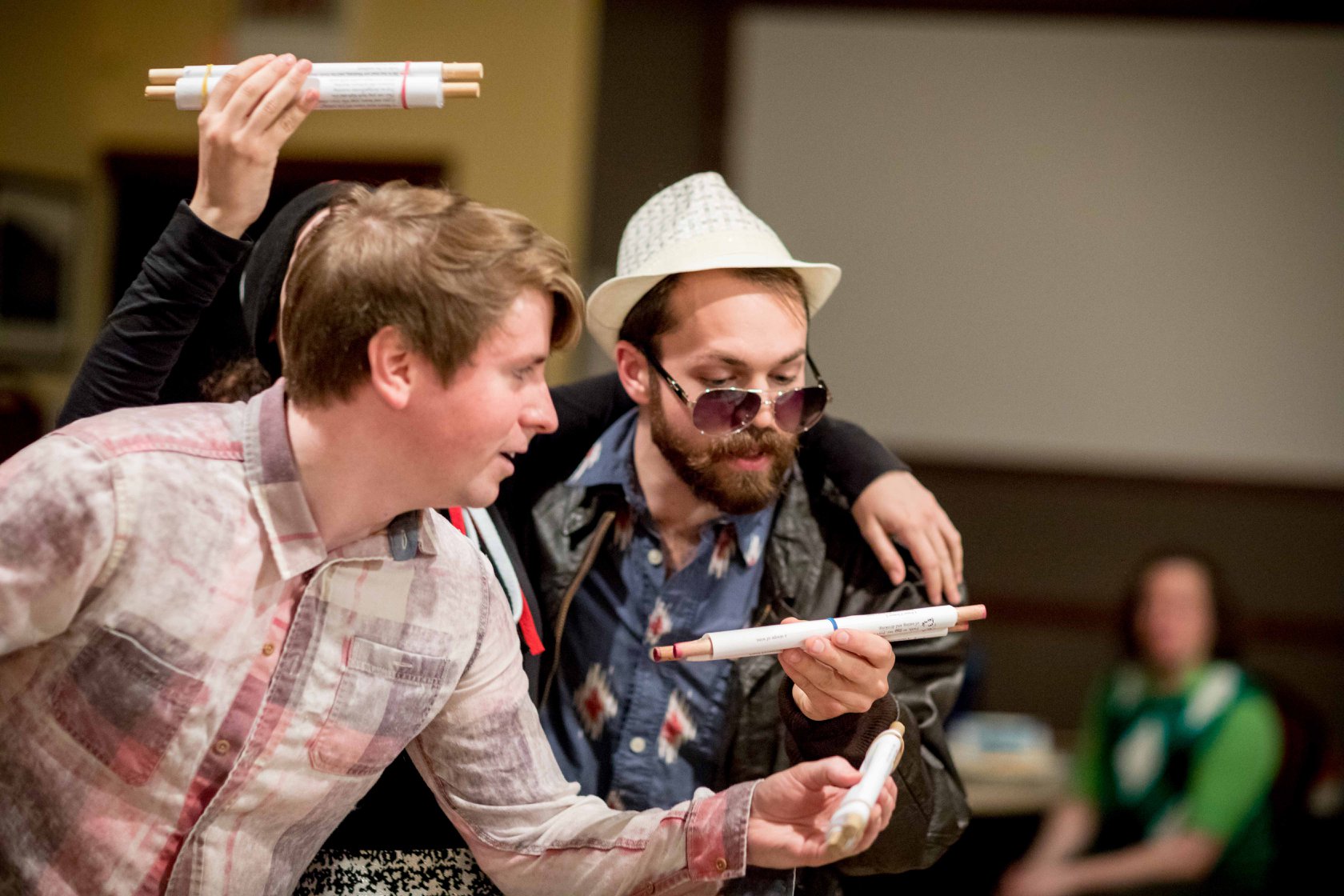
By Jared McDaris
In celebration of our upcoming Twelfth Night, here’s a quick re-publishing of what I learned a few years ago.
The year was 2008. It was a more innocent time. I was wearing blue stockings, oversized pants, an oversized white shirt, and an oversized… I wanna say jerkin, but I know I’m wrong.
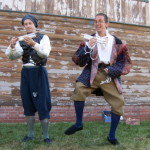
The play was Volpone. I was playing Voltore, a greedy lawyer who gives a slanderous speech in court. I had to tell a story to the audience, an untrue story, involving several characters who were onstage, but with whom I’d had no interaction. I had to remember who was whom based on what I’d already seen that day, get those people close to each other, keep the action downstage, and move quickly enough to keep the energy high.
On top of all that, I had a challenge that, at the time, had never been addressed.
Most of the basic rules of Unrehearsed Shakespeare are simple verbal interpretation, and none of these is simpler than the this/that rule. Simply put, when you say “this glass,” you must be touching the glass; when you say “that glass,” you must not be touching the glass. Easy as pie.
But there was another issue. It’s easy enough to grab a sleeve or point to a shoe, but what about “this argument,” “these illusions,” “that vile deception,” or my personal favorite, “these deeds?” How do you touch, or point to, an abstract idea? How do you indicate a thing that is no longer there?
Eventually, these would come to be known as “Abstract Thises and Thats,” but at the time, I just saw words highlighted in yellow and orange, which meant I had to touch something or point at something. So, not knowing what else to do, I grabbed the air. I pointed at the sky. I patted the ground. I gesticulated wildly. It was cray.
This was somewhat tenebrous ground at the time. We had been given clear instruction not to “interpret” our characters unless the text said so. I couldn’t “gesticulate wildly” unless someone described me as doing so, or if I described myself thusly.
…Thusly…
But on the other hand, there were those words. I had to grab something. I had to point at something. So I did.
What I didn’t know was, later in the play, the two leads come on and comment on my character. In essence, they say: “That guy sure was crazy. He was shouting and gesticulating wildly.”
BAM!! Shouting (I had a lot of exclamation points, a rarity in original Elizabethan copies), and gesticulating wildly! Bam! Nobody told me I was flailing my arms about, and Voltore sure never describes himself as an amateur windmill. How could I have possibly known to do that?
That’s the greatest thing about Unrehearsed Shakespeare: it works. We’ll probably never know if this is really how they did it back then, how carefully Shakespeare (or in this case Ben Jonson) chose his words, or how strongly cod-pieces figure into the phrase “my willing love,” but we do know that when we apply these guidelines to scripts from the era, any scripts from the era, it creates dynamic performances that are always new! Exclamation point!
Twelfth Night is a play I have worked on eight times, both in Unrehearsed productions (this is our fifth annual Twelfth Night on Twelfth Night, and my seventh Unrehearsed performance of it) and in more conventional shows (like in Milwaukee couple Summers ago). But it took me until now to realize: this script has more Abstract Thises & Thats than any other I can remember working on. And what’s really cool is, most of these Abstracts are spoken by Olivia and Malvolio. What do these two have in common?
Besides the fact that they’ve both been played by Danny Pancratz, looking ridiculous.
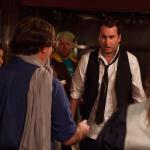
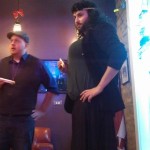
Well, there’s another chapter in the Volpone Voltore story. Shortly after his first impassioned lie in court, the lawyer’s situation reverses. He’s betrayed by a confederate and has to go admit his folly to the court. He does this (at the suggestion of the title character) by pretending to be possessed. He goes mad, convulses on the floor, pretends to vomit up needles (that was fun) and otherwise acts stereotypically insane (all at the direction of Volpone). In a way, his wild gesticulations were a prelude to the coming comic madness.
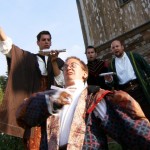
So what does this have to do with Olivia and Malvolio? In a play about repressed passions exploding forth, they are the two characters who are most often called crazy. Olivia is simultaneously called a madonna and a mad-donna, both madam and mad-dame. Most of these epithets are hurled by Feste, liberally; and shortly after she proves him right by madly lusting after the young Caesario. Malvolio’s madness is more straightforward: falsely accused of demonic possession, he is locked up and driven mad (or nearly there), also by Feste.
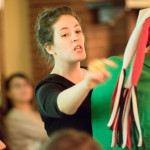
It rocks my world that these two different authors, in these two different comedies, would assign such a heavy amount of Abstract Thises & Thats to characters who have the label of ‘insanity’ attached to them.
We’ll never know if Unrehearsed Shakespeare is historically accurate, but it works, and even after eight years, it continues to yield new and fascinating ideas for me, and new ways to apply those ideas to performance.
Be sure and check out our fifth annual Twelfth Night on Twelfth Night, and judge for yourself.
TWELFTH NIGHT ON TWELFTH NIGHT
January 17th (Tuesday) and 25th (Wednesday)
The Rugby Club, 3614 N Damen Ave
Doors open at 7:00, show starts at 7:30
$5 at the door
Come be something great… the Audience!

